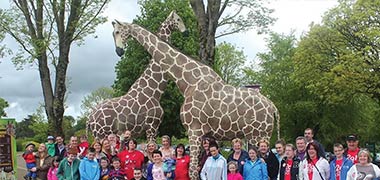I am a Family Member of…
As our children with 22q11 enter primary school and progress through the years, their academic needs become a focus.
Your child may have mobility issues, or a learning delay, or difficulty with conceptual subjects like maths. Some children may struggle with memory, while others could be on the obsessive spectrum. They will also likely have ongoing medical issues that require regular appointments, often taking place during the school week. They may need access to an SNA (special needs assistant) or resource teacher to help them get the most from their school experience, but this is not always available within the current educational system.
As 22q11 is often an invisible syndrome, educators and classmates may not be as sympathetic or patient as they might be with those living with more visible challenges. For example, there may be sight or hearing issues which means that the child with 22q11 needs to sit in a particular position in the classroom.
Teachers and parents also need to be aware of the social aspect of school: quite often issues arise in the schoolyard, rather than the classroom, and it’s important to be vigilant for signs of bullying or other social friction.
Like all children, your son or daughter will make friends, engage with their classmates, and be invited to parties. These social interactions are often enjoyable, but they can bring their own challenges. Parents tend to learn through experience what their child is comfortable with, and how best to help them navigate their social environment.
Every child’s educational, developmental and social challenges will differ, and for parents, a priority is getting the support your child needs in order to fulfil their potential. We can help by sharing our experiences: reach out to us any time to hear our members’ stories.










